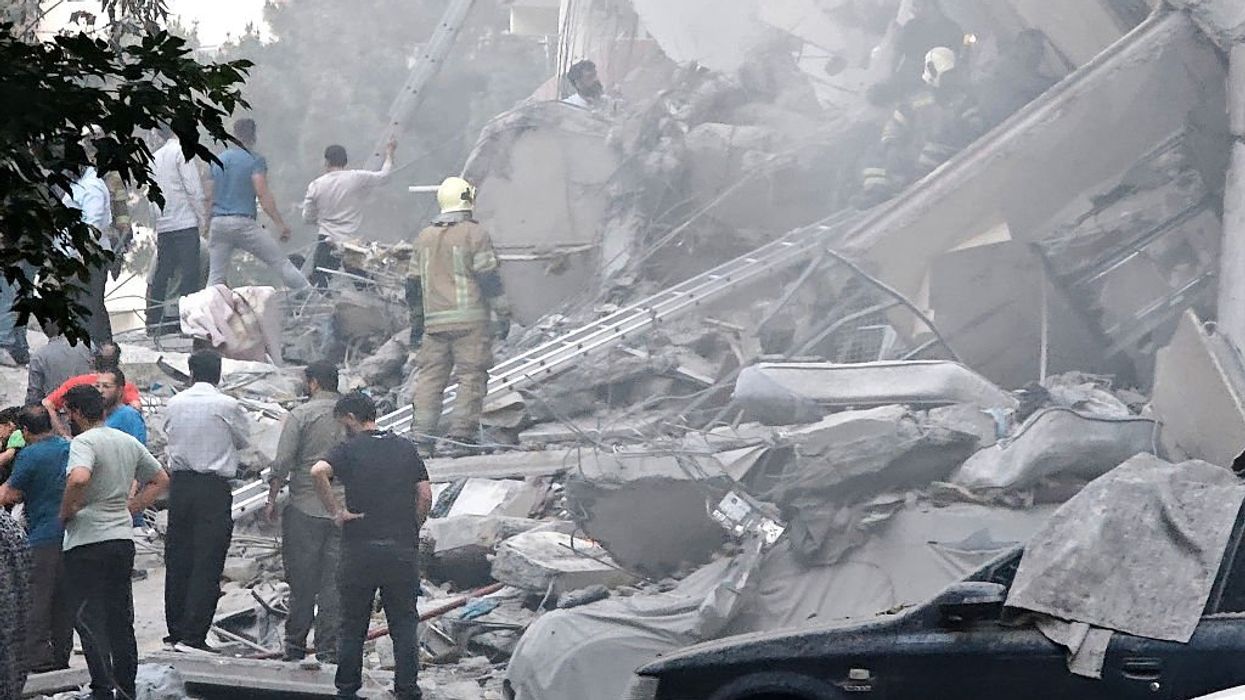"I want to thank President Trump for his leadership in confronting Iran's nuclear weapons program. He has made clear time and again that Iran cannot have a nuclear enrichment program," said Prime Minister Benjamin Netanyahu in an address soon after launching Operation Rising Lion, an attack on Iran.
Netanyahu said that Israel targeted Iran’s main enrichment facility in Natanz and the country’s ballistic missile program, as well as top nuclear scientists and officials, in Friday's strike.
- YouTube youtu.be
According to the Israel Defense Forces (IDF), Israel deployed approximately 200 fighter jets in a major aerial operation, striking more than 100 targets across Iran. The IDF stated that over 330 munitions of various types were used in the attack, which remains ongoing. A military source familiar with the operation told CNN that the campaign is not limited to a single day, suggesting further strikes may follow.
The IDF also reported that Tehran responded by firing more than 100 drones toward Israeli territory. The IDF said Israeli defenses were working to intercept the drones.
Soon after news of the military strikes broke, U.S. Secretary of State Marco Rubio put a distance between the US and what he called "unilateral action" by their close ally. Rubio cautioned Tehran against retaliatory strikes targeting American forces. "We are not involved in strikes against Iran, and our top priority is protecting American forces in the region," he said.
On Thursday, President Donald Trump warned of the possibility of “massive conflict” in the Middle East that could take place “soon.” “I don’t want to say imminent, but it’s something that could very well happen,” Trump told reporters at the White House, CNN reported.
“I want to have an agreement with Iran. We’re fairly close to an agreement. … As long as I think there is an agreement, I don’t want them going in because that would blow it. Might help it, actually, but also could blow it,” he said when asked about a potential Israeli strike.
In recent days, the U.S. has initiated partial diplomatic drawdowns, relocating some personnel from Iraq’s capital and offering voluntary departure options for military dependents across the broader Middle East.
The possibility of the U.S. staying out of the fight in Israel is complex and depends on evolving circumstances. There have been some indications of potential rifts between the U.S. and Israeli leadership. While publicly, the White House has been attempting to signal that it wants to remain out of the immediate fight. The U.S. is Israel's most important ally, making it difficult for Washington to detach itself from the conflict completely. Historical precedents suggest the U.S. may be called upon to defend Israel, as it has in the past.
The U.S. has provided significant military aid and defense support to Israel, including missile defense systems. It has also maintained a military presence in the Middle East, with troops stationed across several countries.
Countries worldwide, including Oman, the UAE, Saudi Arabia, Britain, Australia, and New Zealand, have expressed concern over Israel's airstrikes, with some describing the actions as escalatory. Many nations are calling for both Israel and Iran to de-escalate tensions and to ensure stability in the region.
Sen. Lindsey Graham (R-SC) reacted by saying, “Game on. Pray for Israel.”
In the United States, while many lawmakers voiced their support for Israel's preemptive strikes on Iran, a number of skeptical lawmakers, primarily from the Democratic Party, raised alarms about the potential for these strikes to trigger a broader conflict in the region.
While opinions are divided, a slight majority of Americans (55%) still support the US supporting Israel militarily until all hostages are returned. Polling shows support for taking Israel's side is stronger among Republicans (56%), while majorities of Democrats (62%) and Independents (60%) prefer impartiality.
The U.S. may attempt to avoid direct military involvement, but its strong alliance with Israel, combined with regional dynamics and ongoing support, makes complete detachment from the conflict improbable.
Hugo Balta is the executive editor of the Fulcrum. He is the publisher of the Latino News Network and an accredited Solutions Journalism and Complicating the Narratives trainer with the Solutions Journalism Network.




















Trump & Hegseth gave Mark Kelly a huge 2028 gift